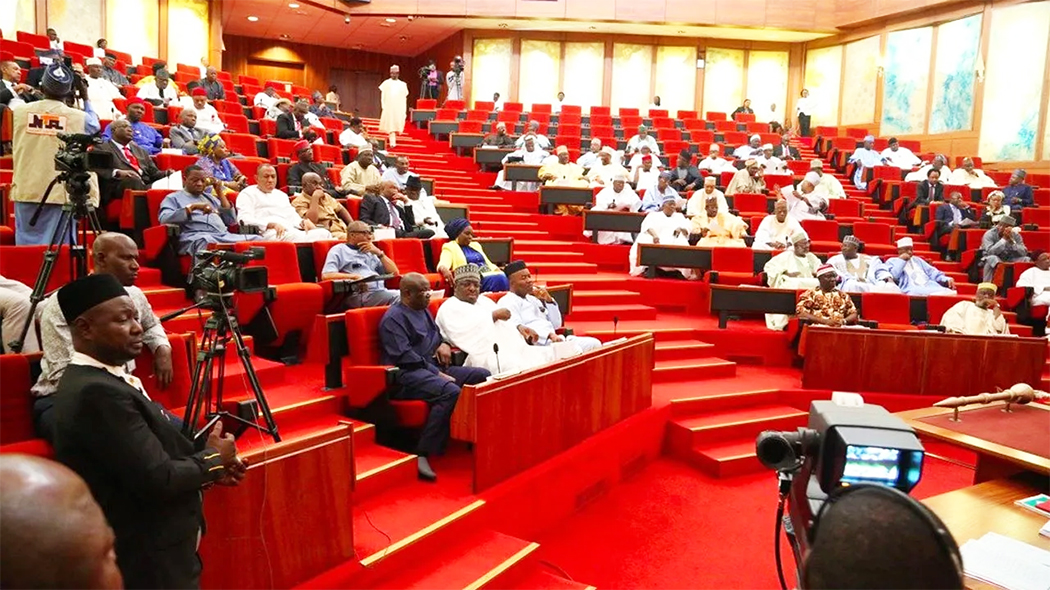On Saturday, a prominent Nigerian senator staunchly defended the National Assembly’s decision to ratify President Bola Tinubu’s proclamation of a state of emergency in Rivers State, arguing that the move deserves praise rather than condemnation. Speaking at the 29th convocation of Ekiti State University (EKSU) in Ado Ekiti, he emphasized that this extraordinary measure was critical to maintaining peace and stability in the region.
The senator highlighted that the emergency rule, backed by the National Assembly, significantly reduced political tensions in Rivers State, preventing a slide into chaos. He described the decision as a responsible and responsive action by a parliament committed to fostering a nation that works for all its citizens. “What do we want as a people? A federation that functions for everyone or one that falls into unending crisis?” he asked, underscoring that such measures, though exceptional, are vital for security and peace.
He pointed out that the legal basis for this action lies in Section 305 of the 1999 Constitution, which mandates the National Assembly to ratify such proclamations. However, he cautioned that interpreting these provisions requires a deep understanding of the Nigeria Interpretation Act of 2004, rather than casual assumptions. Among the outcomes of this ratification, he noted the establishment of the National Peace Committee, tasked with mediating between the state’s executive and legislative branches to restore harmony.
Despite these efforts, the National Assembly has faced sharp criticism, which the senator described as toxic and damaging to Nigeria’s international image. He accused detractors of prioritizing personal interests over national security, asserting that the parliament remains steadfast in its commitment to Nigeria’s stability. “We should be commended for this initiative, not vilified by those who care little for our collective safety,” he said, adding that dissatisfied parties are free to seek legal recourse.
The senator expressed concern over the opposition’s relentless attacks, which he characterized as emotional and lacking substance. Yet, he affirmed that the National Assembly is undeterred, viewing its role as a rescue mission to steer Nigeria toward progress through legislation and collaboration with other government arms. This collaboration, he clarified, strengthens constitutional democracy without compromising the legislature’s independence.
He outlined the Assembly’s broader goals: building a stable federation grounded in the rule of law, improving education and job opportunities, ensuring access to decent housing, reducing misery, and tackling gender inequality. “How can we achieve this without cooperation across government?” he challenged, dismissing critics who fail to offer constructive alternatives.
Addressing criticism, he welcomed it as a democratic necessity but insisted it must be constructive and patriotic. At the same convocation, the Pro-Chancellor of EKSU praised the alumni’s contributions, particularly noting how their association, facilitated by the senator, secured donations like medical hostels, a mini stadium, roads, and a radio station for the university. The Vice-Chancellor echoed this optimism, attributing the institution’s recent ranking as Nigeria’s top state university to increased funding, which rose from N260 million to N410 million monthly.
This defense of the emergency rule ratification reflects a broader narrative of a legislature striving for national stability amid adversity, undeterred by opposition, and committed to a progressive future for Nigeria.












Im not convinced that imposing emergency rule is the best way to achieve peace in Rivers State. What do you all think?
Was the emergency rule in Rivers State really necessary for peace, or just a political move? Lets discuss!
I think the National Assemblys decision to ratify the emergency rule in Rivers State is a necessary step for maintaining peace.
I cant believe some people are still criticizing the Emergency Rule in Rivers State. Dont they want peace? Lets support the National Assemblys decision!
I disagree with the National Assemblys decision. Emergency rule shouldnt be a blanket solution for peace. Lets debate this!
Im not convinced emergency rule is the best solution for peace. Lets discuss alternative approaches! #debate #peacebuilding
I appreciate the National Assemblys decision to support peace in Rivers State. Criticism will always exist, but action is what matters.
I think the National Assembly made a bold move with the emergency rule in Rivers State. Its a tough call, but could be necessary for peace.